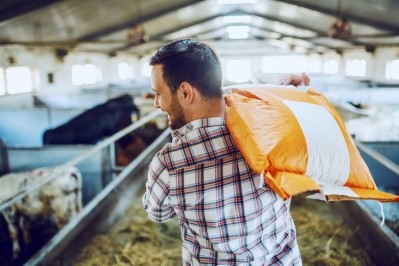MEPs urged to deliver for UK agribusiness, feed production

It is calling on MEPs to deliver continuing growth in productivity of UK agriculture, and to develop an innovative regulatory approach to encourage agriculture and food/feed production. The AIC also wants the policymakers to develop a coherent strategy on science and innovation and to facilitate investment in capacity and capability to measure change in agricultural practices.
The trade group maintains that a ‘whole chain approach’ strategy for agriculture and food production, is missing, leading to business uncertainty that hinders investment and innovation.
This disparity has to be addressed if agriculture is to meet the challenges from society over the next 20 to 30 years, it argues.
AIC CEO, Robert Sheasby, told FeedNavigator that from the supply of farm inputs to the consumer’s plate there needs to be a strategy that tackles key issues such as efficient use of inputs, reductions in the carbon footprint, the minimization of waste at every step, economic benefit and extending to the benefits of healthy and nutritious diets.
“We need to understand how technology can help us deal with such issues, as the capture of data on sustainability to allow its transfer through the chain – providing more accurate information on the ‘footprint’ of the product concerned.
“Although there have been improvements, we also need better communication and coordination throughout the chain so that the consequences of a change in strategy at retail level, for example, can be understood and timetables for change recognized.”
And, in terms of getting things done on the EU political stage, Sheasby said there is a need for a more cohesive approach rather than the silo mentality that still too often exists between the European Commission’s policy departments, the DGs or Directorates-General.
Plant breeding, precision feeding, data
Drilling down to the essentials, the AIC said it is seeking a more focused approach for medium to long term plant breeding targets, saying there is a need for greater understanding, at both the research and commercial plant breeding level, of the attributes required in for improved digestibility in animals.

It also said there is a need to develop precision feeding opportunities where individual animal data allows feed planning to move from group to individual level, currently seen in the use of technology in dairy herds where data from milk production and body scoring is used to create a diet specific to each cow in a herd.
Such an approach can also been observed in the electronic monitoring and weighing of beef animals as they enter a drinking station, an action that gives farmers immediate weight recording information. This could be adapted to supply other data around rumination, temperature, and other parameters, according to the AIC.
“Linking advances in feed technology with this data, by different sectors working together, will deliver a comprehensive approach,” said the CEO.
Regulatory consistency
The AIC further stressed that industry requires greater consistency and predictability around evaluation and approval of new products, especially in the crop protection sector.
Sheasby cited examples to illustrate this point such as when data gaps are identified by the European Food Safety Authority (EFSA) late in the risk assessment procedure, giving the approval holders little time to produce the data, from trials, etc.
“Due to adherence to regulatory timeframes, this can lead to loss of actives and uses e.g. thiram, propiconazole, fenamidone. With short notice, little time is available for agronomists and farmers to use up revoked Plant Protection Products in store and adapt to alternative techniques for meeting a specific control need.”
Another recent example of lack of consistency in this respect, he said, was perhaps the withdrawal of all outdoor uses – with minimum consultation and notice – of metaldehyde for slug control. “The industry had introduced new stewardship guidelines in the past year and further label restrictions were proposed that were not given any opportunity for evaluation,” said the CEO.
He also cited the EU glyphosate approval process as another case in point.
“EU health and food safety commissioner, Vytenis Andriukaitis, said he had no reason to doubt that glyphosate was safe but it was up to national governments to agree to extend the approval of glyphosate. However, Member States were reluctant to reach a decision due to public pressure and lobbying by NGOs. A proposal for renewal of approval for 10 years was then reduced to seven and, eventually, five years.”
In addition, he said there are risks in developing a stand-alone UK risk assessment structure post Brexit.
“Innovators that want to develop novel feeds, especially additives, will have to prepare dossiers for both EU and UK approval, thus increasing costs in terms of dossier preparation and the application process.”
The make-up of the Agricultural Industries Confederation (AIC)
The 210 strong AIC membership comprises businesses that are responsible for over £8bn (US£10.2bn) of trade at the farmgate. The Confederation membership employs some 43,000 people, directly and indirectly.
In addition, there are 4,500 participants in the Trade Assurance schemes operated by AIC’s subsidiary AIC Services, which is charged wtih ensuring food and feed safety as well as fertilizer security.
AIC Services also manages the Feed Adviser Register, which has over 1,100 feed advisers.















